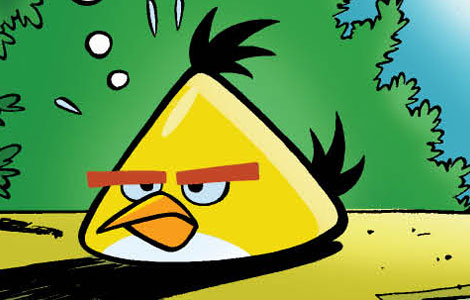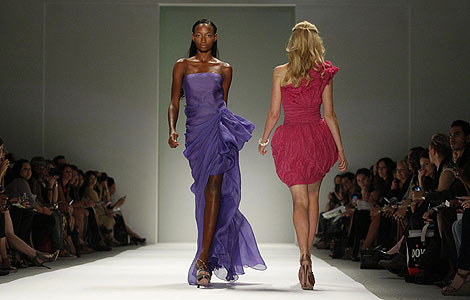With Bush after the planes hit on Sept 11
Updated: 2011-09-11 13:58
(Agencies)
|
|||||||||||
'Get to that wingtip -- now!'
We had no idea where we were going until a young press aide told us our destination was Barksdale Air Force Base in Louisiana, that Bush would make a statement, and that we could report what he said but not where he said it.
On landing, there was none of the pomp and ceremony that normally awaits the president.
Instead, before Bush descended from the Boeing 747, soldiers encircled it, with an officer at one point brusquely ordering one to "get to that wingtip -- now!"
It was as if the military, in all its might, feared that the president's plane was not safe sitting in the middle of a vast tarmac at a base where his very presence was a secret.
Barred from using our mobile phones so that the calls could not be traced to give away Bush's location, reporters were taken to a windowless conference room. Aides scurried to set up a podium and two flags for Bush to make a statement we could later report from "an undisclosed location."
As we waited, someone said news of Bush's arrival had been broadcast on local TV. Quickly confirming this with an Air Force officer, an aide told us we could call our editors.
After vowing to "hunt down and punish those responsible for these cowardly acts," Bush got back on Air Force One with a much-reduced entourage -- leaving behind aides, Secret Service agents and members of the media, including me, to be flown back to Washington on a back-up Air Force jet.
Steve Holland:
Most members of the White House press corps who were in Florida to cover Bush found themselves abandoned. Civilian aviation had been grounded, and it was not until the next day that we gave up on flying home, chartered buses and loaded up on snacks for an overnight drive back to Washington.
Enmeshed in a traffic jam the next morning, the first sense we got of the devastation beyond TV images was a view of the Pentagon from the I-395 highway. Tendrils of smoke were still rising from a long scar in the building left by a hijacked airliner.
The White House itself was ringed by a military cordon. Helicopters whickered overhead. Soldiers carried rifles and confronted passersby. There was a sense of an America at war.
Years later Americans would remark on Bush's ability to study the facts at hand and quickly reach a decision -- too quickly, some would say. But this leader, "the decider," had not yet emerged in September 2001.
After all, this was a president who had taken months to decide on his stem-cell policy and, after winning a big tax cut from Congress the previous spring, he seemed more intent on defining himself on domestic issues.
Smoke trails past Statue of Liberty
Bush completed his transformation to war leader on September 14, on a visit to Ground Zero in lower Manhattan.
Air Force One landed in New Jersey, instead of New York, for security reasons, and Bush and his entourage flew in helicopters to Manhattan. The smell of the smoldering twin towers was obvious from miles away, and a trail of smoke that passed the Statue of Liberty, symbol of America's openness to the world, was a painful image.
On the ground, a thick coating of ash lay on sidewalks and roads for blocks around Ground Zero. A ghostly line of firefighters, their coats covered with ash, stood in silence along the motorcade route, stopping briefly in their struggle to find the remains of their fallen colleagues. The stability of nearby buildings was uncertain, adding to the unease.
Where there had once been soaring twin towers, there was only death and destruction. Girders rose up in awkward angles. Piles of rubble were all around.
Bush had no plans to speak to the rescuers gathered around him as he toured with New York Mayor Rudy Giuliani, but chants of "USA, USA" from the emotional crowd changed his mind.
He clambered up on the remains of a firetruck, put his hand on the shoulder of firefighter Bob Beckwith, and spoke into a bullhorn the words that would define the rest of his White House tenure.
"I can hear you! The rest of the world hears you! And the people -- and the people who knocked these buildings down will hear all of us soon!" he said.
Hot Topics
Libya conflict, Gaddafi, Oil spill, Palace Museum scandal, Inflation, Japan's new PM, Trapped miners, Mooncake tax, Weekly photos, Hurricane Irene
Editor's Picks

|
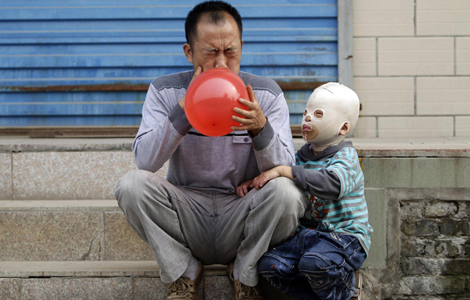
|
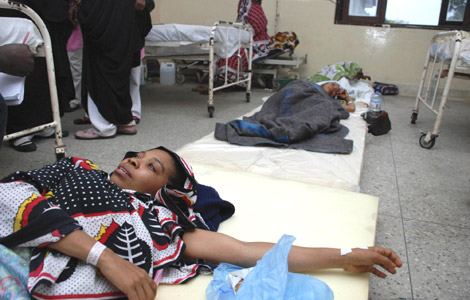
|
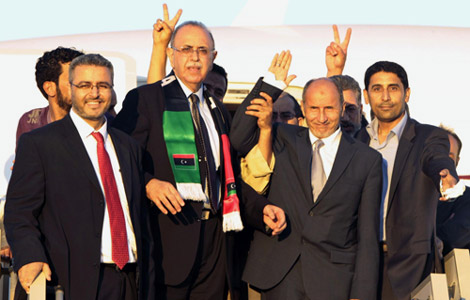
|

|
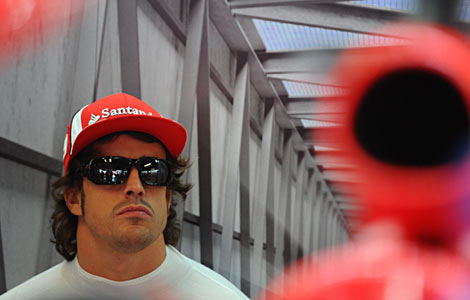
|


